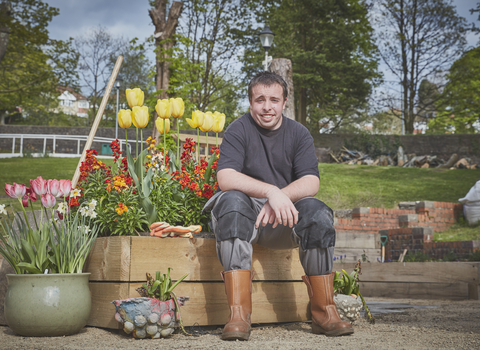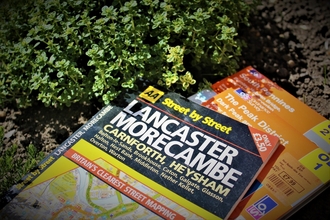Speaking to councils, councillors and people in authority
Image copyright The Wildlife Trusts 2024
Feeling more confident when you talk to your local council
It can be scary if you haven't spoken to people in authority very much, but there is one important thing to remember: they are people! They have bad days and good days, just like you do. Sometimes they don’t have all the answers you need. Sometimes they feel out of their depth, and sometimes they are very helpful.
Speaking to councils and people in authority (https://www.youtube.com/watch?v=y-MKs9g3SWA)
Isla from Newark has some hints and tips about speaking with confidence.
Speaking to councils and councillors: practical tips
You need to know who does what in your local authority and this differs across the UK. See our related guide, All About Councils and Local Authorities.
Most Local Authorities have a website which will list the departments and what each department does. The website will usually have the staff members or contacts that you need.
However, if you can’t find what or who you’re looking for, you might have to ask their reception or admin desk. You can do this by phone or by email, whichever you’re most comfortable with.
Most people use email these days but if you don’t get a response, you could follow up a week later with a phone call.
Speaking to councils and councillors: confidence and communication skills
There is one important thing to remember: they are people! They have bad days and good days, just like you do. Sometimes they don’t have all the answers you need. Sometimes they feel out of their depth, and sometimes they are very helpful.
It is very normal to feel anxious about speaking to someone who is “official”.
Remember that everyone who works for the council is bound by confidentiality and the GDPR (privacy) rules like everyone else.
It is normal to be worried that they might pass information between departments, but this won’t happen. If they are going to break a confidence, they must tell you what they are doing, and why they are doing it. You can speak privately to any member of the council. The only time anyone can pass on private information is if someone is at risk of harm.
Sending a good email
If you are sending an email to someone at the council, stay polite, even if you feel very angry about something. Put the reason that you‘re emailing very clearly in the first paragraph. If you feel upset or angry, say so, and explain why.
For example:
I am emailing you about the way the local verges and hedges around my town have been cut back in the middle of summer. I’m very upset because this is when most of the birds are still nesting, and their habitats have now been destroyed.
If you can add in some facts and evidence, that’s even better:
As you might already know, we’ve lost 70% of our biodiversity since 1970, and this is getting worse.
But keep it short and simple – you can always link to other studies and news articles that back you up.
Now you need to tell them what you want them to do. For example:
I would like to meet with you to discuss how we can avoid this mistake in the future. I’d like to know why you chose to trim the hedges at this time, and help you be aware of the regulations and guidance around hedge trimming seasons. I am happy to come into your office/speak online/have a phone call.
Give them lots of options so they can choose what is best for them.
Why speak to them at all? Because there might be a reason why things have been done in a particular way. It’s good for everyone to listen before they make up their minds. You can also get to know the people responsible, and this can help you influence them.
How to feel confident on the phone
Prepare what you are going to say. You can have it written down. It is very useful to practise your first sentence out loud, too.
Stand up while you are speaking on the phone. This helps you breathe more deeply and can help you to feel more confident.
However, don’t worry if you feel anxious! This is normal! Many, many people dislike using the phone, especially with people they don’t know. Don’t beat yourself up about it. Accept that you feel nervous, and then decide if it’s something you still want to do, or whether you can email them instead.
If you have to phone, then do it first. If you have other things to do that day, do the thing you don’t want to do before anything else. This stops it becoming something that worries you all day.
Do not be afraid to say, “I’m sorry, I’ve got a bit tangled up. Let me start again.” Take a deep breath and go back to the beginning of what you were saying.
Try to be somewhere without distractions or a lot of noise.
Have some nice reward waiting for you after the phone call! This might be anything from five minutes sitting in the garden, enjoying the flowers, to a bit of cake with a cup of tea. Whatever makes you smile.
If phone calls are difficult for you, and you’ve done one anyway – WELL DONE! Some people don’t know how hard it can be. But a lot of people do know it’s hard, and so you can definitely feel proud of yourself.
How to feel confident on a video call
Wear clothes that make you feel good, including your footwear.
Take your time to set up the space. Two minutes before the call is not the time to find out that the camera is too low.
Minimise distractions and noise as much as possible.
Write down what you want to say on notecards or paper.
It can be very distracting to see your own face. You can turn this off and only concentrate on the other person’s face – just like in real life. Many people find this helpful.
Don’t feel obliged to speak all the time. Allowing pauses in between people speaking is good because there can be a time delay too.
Everyone messes up being on mute, even Chief Executives. So don’t worry if it happens to you!


The Wildlife Trusts
Have you been part of a community nature project?
We'd love to hear from you! Your experiences will be shared right here on the Community Hub and will inspire others to take action in their own neighbourhoods.


CC by 4.0 attribution
Except where noted and excluding images, company and organisation logos, this work is shared under a Creative Commons Attribution 4.0 (CC BY 4.0) Licence.
Please attribute as: “Nextdoor Nature (2022-2024) by The Wildlife Trusts funded by The National Lottery Heritage Fund, licensed under CC BY 40”




